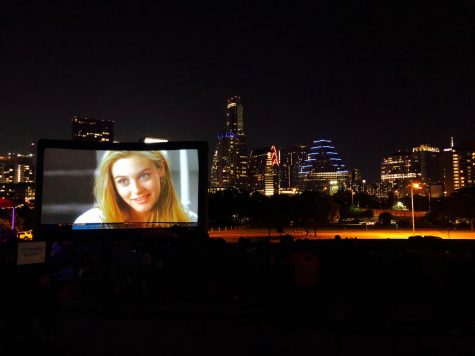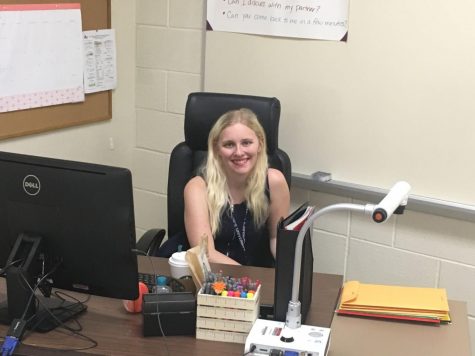Undergrad study abroad experience leads graduate to move to Amsterdam for post-grad education, love
I’m 36,000 feet in the air as I write this post, en route to Amsterdam. Some airplane food and several movies later I’ll be landing in my new home, but had you asked me three years ago if I’m where I planned to be at the end of my St. Edward’s career I would have to respond “No, but I appreciate the obstacles that changed my course and led me here.”
For instance, after much research and hours of scouring various study abroad program sites during my sophomore year, I stumbled upon the EuroScholars program.
This innovative and unique program allowed me to spend an entire semester working on various studies in a cognitive neuroscience laboratory with masters and doctorate students in the Netherlands. Because I came from a small liberal arts college with few research opportunities in neuroscience, it was a wonderful experience to participate in research at such a large institution as Leiden University.
St. Edward’s helped make my EuroScholars experience happen, assisting me with my application submission and working out how lab hours would translate into course credit at home.
During my six months abroad, I traveled to Berlin, Prague, London, Lisbon, Istanbul, Paris, Brussels and many cities within the Netherlands. Aside from the expected cultural education I gained, I learned more about myself, what I wanted out of life and what kind of person I wanted to be.
Additionally, I better understood the reality of research; it’s spending weeks in a damp old basement, running 200 participants through the exact same procedure nine times a day and hoping you have a result worth publishing at the end.
While I enjoyed my work in the lab and I am not opposed to pursuing research again in the future, it just didn’t fit me. But sometimes finding out what you don’t want can be more useful and inspiring than learning what you do want.
I met a half-Portuguese half-Dutch physics student, Eduardo, who lived one floor above me in my Leiden dorm. From the start Eduardo and I rarely agreed on any contentious subject, from politics to human psychology.
Initially I was put off by the constant clash between us; but while I was away in yet another city for a long weekend, I found myself missing our arguments and heated debates. By the time summer arrived Eduardo and I were riding our Dutch bikes side by side and gazing lovestruck into each other’s eyes.
But summer ends and gives way to autumn and winter, especially in the Netherlands, so I returned to Austin for my senior year.
Eduardo and I committed to pursue a long-distance relationship, with plans for me to move back to Europe eventually.
After graduating last May I started working an administrative temp position, knowing I would soon be moving back to the Netherlands. (Almost a year later I’ve finally to crossed the pond!)
During that time, I discovered the aspects of administrative work I enjoy in addition to those I don’t, and more importantly the aspects I am good at.
I’ve never enjoyed the lecturing and quizzing side of teaching, but more the one-on-one work done while studying with a friend; they understand one concept in the material that you struggle with, and vice versa. With this reciprocity, you are able to tutor each other in a way tailored to your personal needs.
Apparently training people for job positions is not dissimilar. And if you’ve ever been trained for an office job, you’ve probably experienced the unfortunately common “trial by fire” technique utilized in most companies.
I emerged from my own fires battered and indignant, entirely sure there must be a better way that won’t cost a company an excessive amount of man-hours. So I took initiative and began developing a training manual for my position based on my first few months work. Coincidentally another temp worker was hired shortly after me, allowing me to assist in training her using my manual, fine tuning my work by recalling what was difficult for me initially.
From there, I became interested in the development and execution of training, and how to best tailor content for different learning styles. It seems to be a happy medium between integrating research from psychology in dynamic and diverse business fields.
With this in mind, I’m currently waiting to hear back from a master’s program in work and organizational psychology starting this fall here in the Netherlands.
Before deciding on this program, I revisited St. Edward’s to consult with several of my old psychology professors, gathering their opinions on the program as compared to a more research-focused neuroscience program. Their wisdom and frankness was an immense help in my decision-making process, and I’m so thankful for their many years of dialogue with me. I appreciate the role they played in my time at St Edward’s as a student, and I’m glad to say our relationships did not end as I crossed the stage at graduation; I now consider them colleagues and friends for life.
Like most things in life, education is a reciprocal endeavor; put in a healthy dose of time and energy, and you’ll get paid back in droves. I’ll never regret the friendships founded, the mistakes made and the lessons learned during my time on the Hilltop and how they’ve helped me find my place in this big world.
Come June this year, Eduardo and I will celebrate our second anniversary while settling in our new home just outside Amsterdam. Throughout the process of buying a house, applying to graduate school, getting a visa and moving 5,018 miles away from home, I have worked hard to ensure I’m not giving up one thing for another: love for a career, a career for love.
This international move sounds like some romantic shtick designed to make you feel bad about how boring your own life is, but realize there is an incredible amount of paperwork and minutiae to sift through for these big life changes, and they do impact your relationship. It’s not all sunshine and tulips by the canals, but these difficulties are ultimately what make the end result worthwhile.



